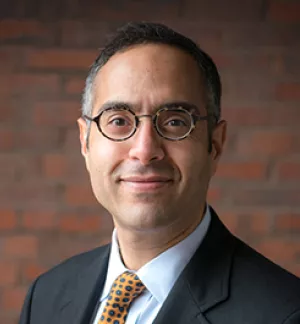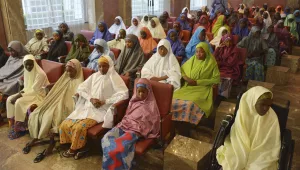Shortly after Mohamed Morsy's ouster as president of Egypt, his ambassador to the United States -- in a remarkable display of political flexibility -- appeared on American television to explain that his boss had been overthrown because he "failed to be the president of all Egyptians." This notion, that Morsy was removed because he pursued a narrowly Islamizing agenda and failed to include liberals in his cabinet, has become something of the conventional wisdom. For example, Thomas Friedman chided the former Egyptian president for having ruled in a "majoritarian" fashion, running roughshod over his liberal opponents, Islamizing the state, and putting the squeeze on critics like the satirist Bassem Youssef. In this telling, what we saw on June 30 was a replay of what we saw on January 25, 2011 -- a revolution by liberals intent on establishing a free and democratic Egypt.
Though there is some truth to this narrative, June 30 was less a revolution than a counter-revolution, carried out not by the photogenic young people who made Tahrir Square a household name two-and-a-half years ago, but by the orphans of the regime that those young people had overthrown. Morsy's sin was not that he sought to Islamize the state -- Hosni Mubarak had done a pretty good job of that himself, and the temporary constitution issued by the new interim government includes all of the shariah-talk that liberals supposedly found so objectionable. It wasn't even that it tried to exclude liberals like Hamdeen Sabahi and Mohamed ElBaradei from governing. According to Sabahi himself, Morsy offered him the vice presidency shortly after coming to power last year. And although ElBaradei has just been named vice president for international affairs, it's safe to assume that the number of protesters who took to the streets to put this widely (if unfairly) maligned man in government is vanishingly small.
No, the sin of the Muslim Brotherhood was not that it failed to work with liberals, but that it failed to work with the old regime. For the almost the entirety of its time in power, the Brotherhood has demonstrated a remorseless, unyielding obsession with rooting out Mubarak's National Democratic Party from Egypt's political life. This extent of the obsession was on full display in one of the last speeches of Morsy's presidency. Before a crowd made up of equal parts dignitaries and rowdy Muslim Brothers from the provinces, he railed against the remnants of the ancien regime -- commonly called the fulul -- and then took a few minutes to tell an unflattering story about a man named Kamal el-Shazly, who was Mubarak's parliamentary enforcer -- and who has been dead since 2010. This odd detour into what is now ancient history reveals the extent to which Morsy and his Brothers viewed as Egypt's primary problem as not the crumbling of its economy or the decay in public order, but the continued presence of Mubarak's allies and appointees in almost every corner of the state apparatus. "One year is enough," the president declared, suggesting that the gloves were soon to come off and a full-blown purge was in the offing. In the end, he was the one who was purged.
The Brothers were not alone in their obsession with the NDP. During the 2011 revolution, the youth of Tahrir made a grand bonfire of the ruling party's headquarters, and in the months after January 25, 2011, practically all of Egypt at least paid a healthy lip service to the need to banish the fulul. Though the NDP made a game attempt to regroup in the weeks after Mubarak's resignation, these attempts were cut short in April 2011, when a court dissolved the NDP and ordered the state to seize its assets, ruling -- in a questionable bit of legal reasoning -- that the fall of the regime "by necessity entails the fall of the instruments through which it wielded power."
But the dissolution of the old ruling party was not enough for the Brotherhood; its ashes had to be scattered to the winds. And the military, concerned only with maintaining its narrow prerogatives, assented. Prior to the 2012 presidential elections, the Islamist-dominated legislature amended the law on the exercise of political rights. That law lists several categories of people who do not have the right to vote or run for office -- prisoners, the mentally ill, the bankrupt. Islamists added a fourth, almost comically specific, category: "Everyone who has in the ten years prior to February 11, 2011, worked as president of the republic or his vice president or prime minister or president of the dissolved NDP or its secretary general or was a member of its political office or general secretariat." The bill was rejected by the courts, clearing the way for Mubarak's last prime minister, Ahmed Shafiq, to run for president. If the Brothers took a lesson from Shafiq's surprisingly strong showing in that election -- he lost to Morsy by only a couple of percentage points -- it was not that the satraps of the old regime must be accommodated, but that they must be crushed.
Thus, once Morsy won the presidency, the Brotherhood and its Islamist allies made another, even more audacious, run at excluding the NDP. And this time, in order to prevent the courts from overturning their handiwork, they enshrined the old ruling party's political exclusion in the constitution itself. Article 232 of the charter that passed in December 2012 (and was suspended in July 2013) declared: "Leaders of the dissolved National Democratic Party shall be banned from political work and prohibited from running for presidential or legislative elections for a period of 10 years from the date of the adoption of this Constitution." The article helpfully defines NDP "leaders" as "everyone who was a member of the Secretariat of the Party, the Policies Committee or the Political Bureau, or was a member of the People's Assembly or the Shura Council during the two legislative terms preceding the January 25 revolution." It's not surprising that the most intense protests against the Brotherhood began after the passage of the constitution, as NDP-affiliated businessmen and NDP-affiliated television personalities began ginning up the popular anger that exploded on June 30, 2013.
The tragedy of Morsy's presidency, then, is not that he underestimated the ability of the fulul to play the spoiler, but that he overestimated his own ability to confront them. Mubarak's party may have slinked away in the months after February 11, 2011, but it had not disappeared. After all, you couldn't rule for as long as Mubarak did without building a large coalition -- the vast countryside and the hulking bureaucracy are littered with card-carrying members of the deposed ruler's big tent. Morsy's constant talk of purge may have satisfied his supporters, but it could only convince the regime's former cronies that they had no place in the new Egypt.
The disaster that befell Egypt on June 30 -- and make no mistake, the unseating of a legitimately elected ruler at gunpoint cannot be anything other than a disaster -- could have been avoided had the Muslim Brotherhood taken a lesson from their Muslim brothers 5,000 miles away, in Indonesia. In 1998, that country's strongman, Suharto, who had ruled since 1967, was forced to step down by protests remarkably similar to those that brought down Mubarak. But whereas Egyptians tossed their dictator in jail and tore up his ruling party, Indonesians pursued a different, gentler path. Suharto -- a man every bit as corrupt as, and considerably more brutal than, his Egyptian counterpart -- was allowed to live out his days in luxury, and his old ruling party, Golkar, was not only allowed to persist (reliably capturing about 20 percent of the vote in legislative elections), but has been included in every post-Suharto cabinet but one. Indonesians may not have satisfied their powerful desire for justice, but their willingness to forgo retribution and work with supporters of the old regime is what allowed that country's nascent democracy to take root despite its endemic poverty and vast ethnic diversity.
It's not too late, however, for Egyptians to learn the lesson of Indonesia. Now that the old regime and the Muslim Brotherhood have once again traded places, will Mubarak's resurgent orphans extend to the Brotherhood the kindnesses that were not extended to them? Given the dramatic campaign against the Brothers in the Egyptian media, the arrests of Brotherhood leaders, and the brutality meted out to Brotherhood protesters, the answer is likely no. But until Egypt's two old regimes -- the Brotherhood's and Mubarak's -- reach a modus vivendi, the future promises only more revolution and counter-revolution. It's not clear how much more the beleaguered masses can take before they begin to yearn for the grim stability offered by a bemedaled general.
Masoud, Tarek. “How Morsy Could Have Saved Himself.” Foreign Policy, July 19, 2013




